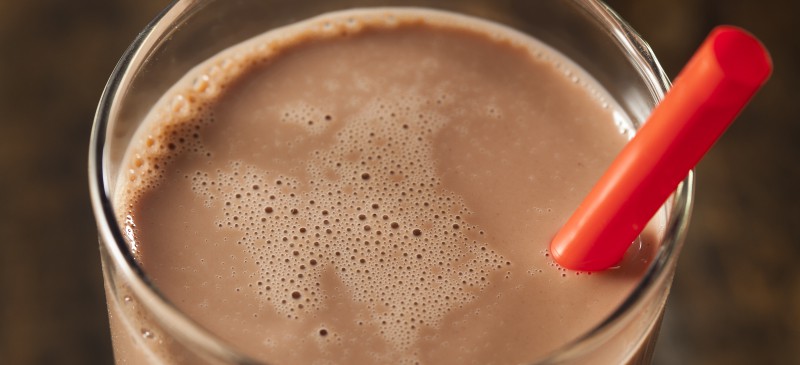This Dr. Axe content is medically reviewed or fact checked to ensure factually accurate information.
With strict editorial sourcing guidelines, we only link to academic research institutions, reputable media sites and, when research is available, medically peer-reviewed studies. Note that the numbers in parentheses (1, 2, etc.) are clickable links to these studies.
The information in our articles is NOT intended to replace a one-on-one relationship with a qualified health care professional and is not intended as medical advice.
This article is based on scientific evidence, written by experts and fact checked by our trained editorial staff. Note that the numbers in parentheses (1, 2, etc.) are clickable links to medically peer-reviewed studies.
Our team includes licensed nutritionists and dietitians, certified health education specialists, as well as certified strength and conditioning specialists, personal trainers and corrective exercise specialists. Our team aims to be not only thorough with its research, but also objective and unbiased.
The information in our articles is NOT intended to replace a one-on-one relationship with a qualified health care professional and is not intended as medical advice.
Benefits of Meal Replacement Shakes + Best Options
October 30, 2018

In a perfect world, we would all have enough time each day to prepare homemade healthy meals, in addition to sitting down to eat them mindfully. But given how busy most people are today, it’s not surprising that meal replacement shakes, bars and snacks have exponentially grown in popularity over the past several decades.
Time isn’t the only barrier keeping some adults from preparing and enjoying fresh foods; older adults and people with chronic health conditions can sometimes lack the appetite necessary to eat enough calories to fuel their bodies. Additionally, some view meal replacement products as a quick-fix for fast weight loss with minimal time and effort required.
If you fall into either of these categories, you may be wondering how meal replacements can impact your health. In addition to supporting weight management by either increasing or decreasing caloric intake, meal replacement shakes can also help supply important nutrients, promote healthy portion sizes and maintain normal blood sugar levels.
Ready to learn more? Here’s what you need to know about meal replacement shakes, plus what to look for on your next shopping trip to help maximize the potential health benefits.
What Is a Meal Replacement Shake?
Meal replacement shakes are usually bottled products or powders that you drink in place of one of your main meals. Many people use meal replacement shakes for weight loss or healthy weight gain by either decreasing or increasing their caloric intake. Meal replacement shakes are also used to supply a quick and concentrated dose of important micronutrients or to save time in a pinch.
In general, most meal replacement shakes provide around 200–400 calories per serving along with an array of other important nutrients, including protein, fiber, vitamins and minerals. In addition to weight loss shakes, pre-made snacks like bars and juices can also be useful to keep you feeling satisfied between meals, help maintain blood sugar levels and prevent overeating to keep your waistline in check.
5 Benefits of Meal Replacement Shakes
- Provides Important Nutrients
- Supports Weight Management
- Helps Avoid Unhealthy Alternatives
- Promotes Healthy Portion Sizes
- Manages Blood Sugar Levels
1. Provides Important Nutrients
When cutting calories and reducing your intake on a weight loss diet, it can be difficult to ensure you’re still getting all of the important micronutrients that your body needs, increasing the risk of micronutrient deficiencies. Fortunately, the best meal replacement shakes offer a wealth of essential nutrients, including protein, fiber and various vitamins and minerals.
In fact, meal replacement shakes are also typically enriched with other nutrients that might be lacking in a traditional Western diet, including key vitamins and minerals like calcium, vitamin D, iron and potassium. Supplementing with a multivitamin or adding a few meal replacement smoothies into your routine can be a simple way to get the nutrients that you need to help round out an otherwise healthy, well-balanced diet.
2. Supports Weight Management
If you’re looking to shed a few extra pounds, incorporating a few weight loss meal replacement shakes into your daily routine can be incredibly beneficial. In fact, some research suggests that swapping out even just one meal per day for a meal replacement can produce a significant energy deficit, helping to increase weight loss. (1)
One study conducted by the Columbia University College of Physicians and Surgeons also showed that participants who swapped one to two meals per day with a meal replacement lost 5.6 pounds more than those following a conventional reduced-calorie diet after just three months. (2)
Meal replacements are also often high in protein and fiber, both of which are important nutrients that can help kick up weight loss. Protein, for example, can delay the emptying of the stomach to keep you feeling full and reduce levels of ghrelin, the hormone responsible for stimulating hunger. (3)
Fiber, meanwhile, moves slowly through the digestive tract to promote satiety and may even be associated with a reduced risk of weight gain. (4)
On the other hand, meal replacement shakes may also work as a good tool if you’re hoping to gain weight as well. For older adults, people with chronic health conditions or those with decreased appetite, enjoying a shake as a snack between meals can be an easy and effective way to bump up caloric intake and support healthy weight gain without loading up on high-calorie junk food.
3. Helps Avoid Unhealthy Alternatives
When you’re running short on time or low on energy, taking the time to prepare a healthy and nutritious meal may be the last thing on your mind. Instead, most people give into the temptation of swinging through a drive-thru, ordering a pizza or grabbing whatever junk food is sitting in the fridge for a quick meal on the go.
Having a few healthy meal replacement protein shakes on hand can be a simple strategy to avoid these unhealthy alternatives and avoid setbacks to stay on track with your heath goals.
4. Promotes Healthy Portion Sizes
Keeping portion size under control is one of the key components of successful and sustainable weight loss. Even nutrient-dense foods like legumes, nuts, seeds and fruits may cause the calories to start stacking up if you’re not careful, quickly turning a healthy snack into a calorie bomb.
Meal replacements make it easy to monitor your portion sizes, getting just enough of the nutrients that you need to support satiety and keep you feeling full between meals without going overboard. Not only can this help prevent spikes in blood sugar and aid in weight maintenance, but it can also support long-term health and minimize the risk of serious issues associated with overeating like heart disease and arthritis.
5. Manages Blood Sugar Levels
Overeating can come with a wide range of potential side effects, especially when it comes to your blood sugar levels. Indulging in high-carb meals and snacks can cause blood sugar to shoot up, resulting in diabetes symptoms like fatigue, increased urination and unintentional weight loss.
Because meal replacement shakes are pre-portioned, they help deliver just the right amount of carbohydrates to prevent spikes and crashes in blood sugar levels. They’re also usually high in protein, which can slow the absorption of sugar in the bloodstream and improve blood sugar control. (5)
According to one study in the journal Obesity Research, consuming a liquid meal replacement as part of a regular diet led to significant improvements in body weight as well as insulin and blood sugar levels in people with type 2 diabetes. (6)
Best Types
Although incorporating a few servings of meal replacement powder products into your routine can come with a long list of potential benefits, picking the right one is absolutely vital. While certain types can deliver a megadose of nutrition quickly and conveniently, other products are pumped full of fillers, added sugars and unhealthy ingredients that end up doing more harm than good when it comes to your health.
When shopping for shakes, take a look at the ingredients label and read carefully. The best protein shakes should:
- be free of high-fructose corn syrup, hydrogenated vegetable oil and added sugars
- contain a good amount of protein and fiber — with around 15–20 grams of protein and 3–5 grams of fiber per serving — plus at least 33 percent of the daily value for most vitamins and minerals
- not contain over 10 grams of sugar or a long list of chemicals and synthetic additives listed on the label
- be made with whole food ingredients such as nuts, seeds, veggies and herbs
Alternatively, you can also try making your own homemade meal replacement shakes at home. There are plenty of meal replacement shakes recipes out there, making it easy to find one that works for you.
You can also experiment using ingredients like whey protein, protein powder made from bone broth, Greek yogurt, fruit, leafy greens, collagen, almond milk and more to tailor your shake to your personal palate and nutritional needs. There are now even keto protein powders that are higher in healthy fats, as well as contain protein, and help offer a meal replacement for those following the keto diet. If you’re a vegan or vegetarian, you can use newer plant-based proteins like pea protein or hemp protein powder.

Risks and Side Effects: Ones to Avoid
Certain meal replacement shakes can actually be harmful to your health. In fact, many popular brands are highly processed and loaded with unhealthy ingredients, sugar and additives, negating any of the potential health-promoting properties that may be associated with meal replacement shakes.
Meal replacement bars and snacks are a common culprit; manufacturers often slap a label onto these popular products with claims like “healthy,” “low-fat” or “low-calorie,” only to load them full of synthetic ingredients and artificial flavors that are no good for health.
When checking the ingredients label of your meal replacement shake, look out for these unhealthy ingredients:
- Corn syrup
- Vegetable oils (canola oil, corn oil, etc)
- Artificial sweeteners (sucralose, aspartame, etc)
- Synthetic food dyes
- Added sugar (sucrose, fructose, dextrose, maltose, etc)
- Artificial flavors
Additionally, skip any products that don’t offer at least 3 grams of fiber and 10 grams of protein per serving. Ideally, meal replacement shakes should also provide at least 33 percent of the daily recommended value for important vitamins and minerals such as calcium, iron and potassium.
Finally, keep in mind that meal replacements can be included in moderation as part of a healthy diet, but they should always be paired with plenty of whole foods as well to help ensure you’re meeting your nutritional needs. They may also not be a long-term solution and should be used alongside other behavioral modifications and lifestyle changes to optimize health in the long-run.
Final Thoughts
- Meal replacement shakes are typically nutrient-rich bottled products or powders that are consumed in place of your main meals.
- The best meal replacement shakes for weight loss and overall health should contain a good amount of fiber and protein as well as an assortment of important vitamins and minerals.
- When used correctly, meal replacement shakes could help supply important nutrients, aid in weight management, promote healthy portion sizes and keep blood sugar stable. They can also help you avoid other unhealthy alternatives such as fast food or frozen convenience items.
- Steer clear of shakes and products with added sugars or artificial ingredients and opt for shakes made from nutritious whole foods instead.
- Keep in mind that meal replacement shakes should not be used as a replacement for real food, but instead should be viewed as a way to supplement your diet with an added dose of important nutrients.













